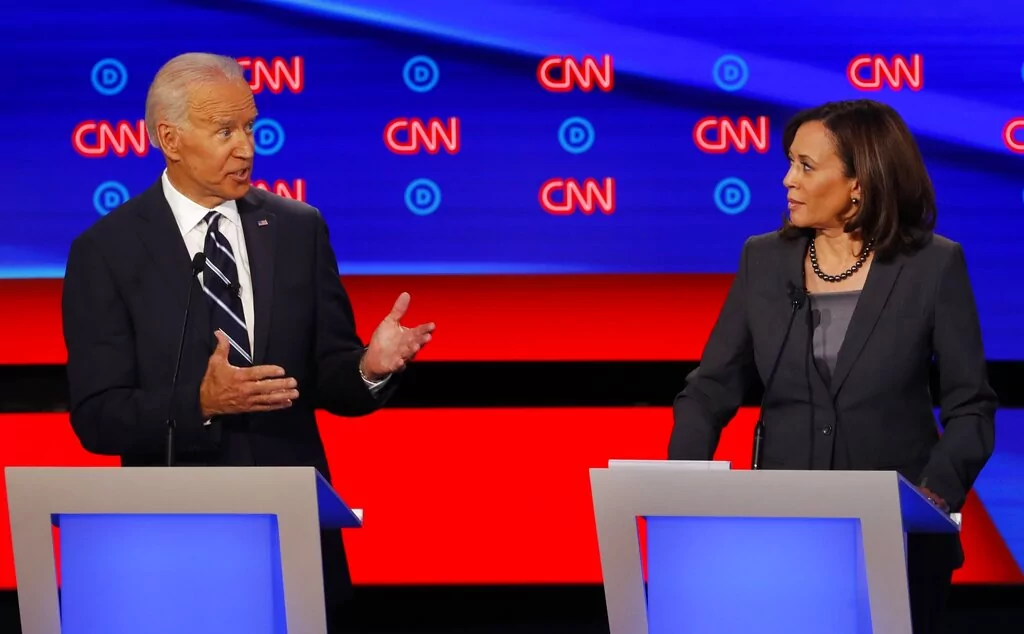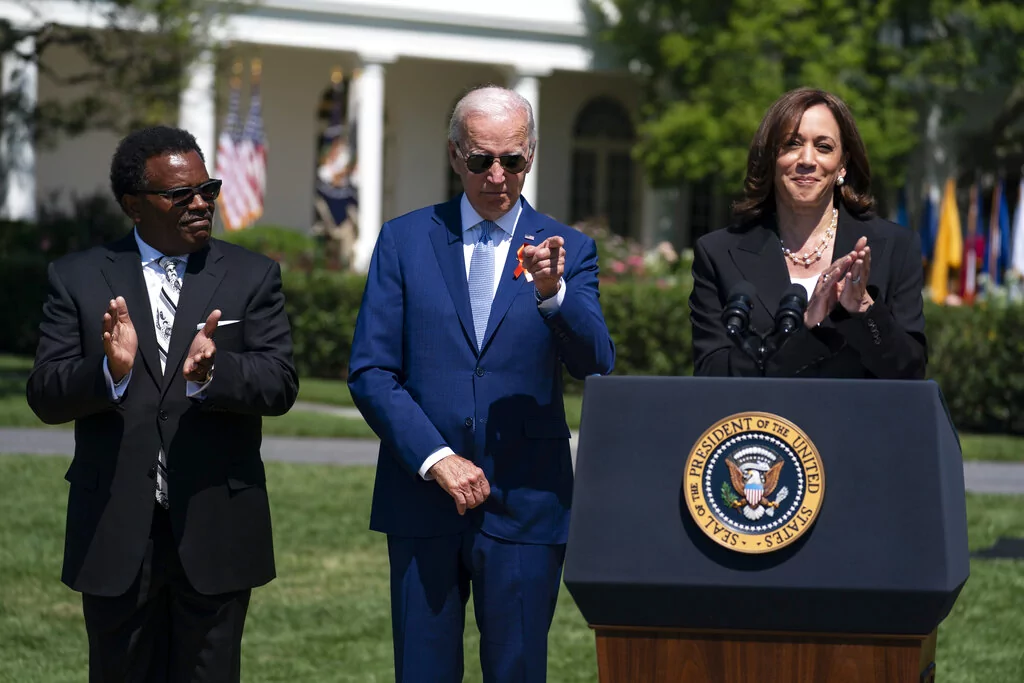
Vice President Kamala Harris is receiving a flood of new attention as the Democratic Party appears to be coalescing behind her as its nominee.
Harris has only been on the national political stage since 2016, when she won a California U.S. Senate seat, but her record in the Golden State goes back much further, to her time growing up as the child of two college professors and her earliest days on the local political scene.
Here is a rundown of her journey from California to the White House.
Early years as child of professors
Harris was born in Oakland, California, on Oct. 20, 1964, the daughter of Indian and Jamaican immigrants. Both of her parents were college professors, her mother conducting research at the University of California, Berkeley, among other institutions, and her father working at nearby Stanford University. Her parents divorced when she was seven.
She attended Washington, D.C.’s historically black Howard University, where she interned for California Sen. Alan Cranston, and graduated in 1986 with a degree in economics and political science. Three years later, she earned a law degree from the University of California Hastings College of the Law and remained in that state until becoming vice president in 2021.
First job in politics linked to boyfriend, 30 years her senior
While she worked as a deputy district attorney in the Oakland area, Harris’s first brush with politics came with considerable controversy. In 1994, she began dating then-Speaker of the California Assembly Willie Brown, a powerful official who was 30 years her senior and was separated but not divorced from his wife.
Brown appointed Harris to two boards, including the California Medical Assistance Commission, on which she served from 1994 to 1998 earning just over $70,000 per year ($150,000 in 2024 dollars). The board met twice a month, and Harris missed roughly one in every five meetings during her tenure, the Washington Examiner reported in 2019.
But Harris later moved on from Brown and from the controversial board appointment, continuing her work as a prosecutor while working for the city of San Francisco. In 2003 she was elected San Francisco district attorney, promising never to seek the death penalty, and won reelection unopposed in 2007.
Three years later, she was elected attorney general of California and then reelected to that position in 2014.
Just one year after winning her second term as attorney general, she entered the race to replace the retiring Sen. Barbara Boxer, besting a crowded field to win and enter national politics for the first time when she was sworn in as California’s junior senator in early 2017.
Harris’s rapid ascent continued on Martin Luther King Jr. Day in 2019, when she announced a run for president.
First presidental run against Joe Biden
Her presidential campaign initially looked promising, polling at 12.3% in February, which was good for third place. She later got near the front of the pack at 15.2% after she blasted Biden over his stance on public school busing programs during the 1970s.
But it was all downhill from there.

Then-Rep. Tulsi Gabbard called out Harris over her record as a prosecutor, saying she put more than 1,500 people in jail for marijuana violations and then laughed when she was asked if she’d ever smoked marijuana herself.
“[Harris] blocked evidence, she blocked evidence that would have freed an innocent man from death row until the courts forced her to do so,” Gabbard continued. “She kept people in prison beyond their sentences to use them as cheap labor for the state of California, and she fought to keep a cash bail system in place that impacts poor people in the worst kind of way.”
Harris mostly dodged the issues in her response, saying Democrats needed someone who could rebuild the Obama coalition and take on President Donald Trump. “I believe I am that candidate,” she said.
While she may yet prove to be that candidate in 2024, Harris did not do so in 2019. She dropped out in early December, more than a month before the Iowa caucuses, amid reports of poor leadership and infighting within her campaign.
Green New Deal backer
Biden selected her for his own campaign after promising to choose a woman as vice president and facing intense pressure to choose a black woman in particular. The pair defeated Trump and she became the first female vice president in January 2021.
But Harris’s record since then suggests a similar dynamic to her doomed presidential campaign. She has dealt with reports of disgruntled staffers and high turnover since taking office, and many politicos felt that one of Biden’s reason for seeking reelection in spite of his advanced age was to avoid leaving her as the party’s standard bearer.
Republican operatives will likely point to Harris’s positions during her time in the Senate and as a short-lived presidential candidate to paint her as a hard Left candidate. Harris co-sponsored the Green New Deal as a senator and said she supported a ban on fracking while running for president.

She also proposed, along with Rep. Alexandria Ocasio-Cortez (D-NY), the Climate Equity Act, which would require the government to consider the effects of any environmental legislation or regulation on low-income communities.
Harris was dubbed the “border czar” by Republicans after she was appointed by Biden in March 2021 to address the root causes of illegal immigration, which has surged in the three years since.
But Democrats see positives to her entering the race. At 59, Harris is two decades younger than Trump, has been a strong campaigner for her party on the hot-button topic of abortion, and would become the first female president if elected.
CLICK HERE TO READ MORE FROM THE WASHINGTON EXAMINER
Pennsylvania-based Democratic strategist T.J. Rooney says she definitely has a stronger shot at winning than Biden would have if he had stayed in the race.
“Her appeal to voters in the suburbs, the ability to press the case against Trump, is vastly improved,” he said. “This campaign will again be focused on who Trump is and what he’s done. She can much more forcefully deliver that message — and that’s what makes her competitive in Pennsylvania.”





